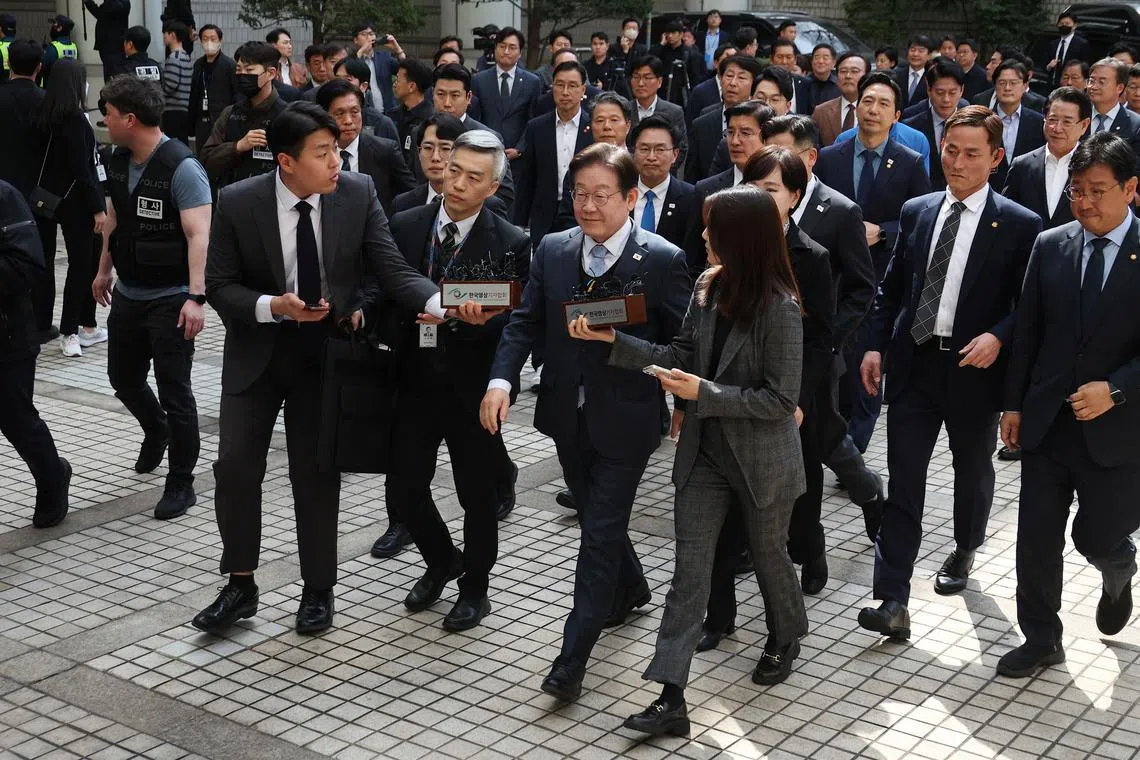South Korea opposition leader steps down amid expectations of presidential run
Sign up now: Get ST's newsletters delivered to your inbox

Democratic Party leader Lee Jae-myung said he will be 'starting new work'.
PHOTO: REUTERS
Follow topic:
SEOUL – South Korea’s main opposition party head Lee Jae-myung said on April 9 he was stepping down as party leader, amid expectations that the current populist front runner for the presidency in opinion polls would soon declare his run.
Labour Minister Kim Moon-soo, who has been among a handful of ruling People Power Party (PPP) members who indicated intentions to run, also declared his candidacy.
South Korea will hold a presidential election on June 3
“I will be now starting new work,” Mr Lee, the Democratic Party leader, said at a party leadership meeting carried live on his YouTube channel.
Mr Lee, 61, lost by the slimmest margin in the country’s history when he ran against Yoon in the 2022 presidential election. In 2024, he led his liberals to a landslide victory in a parliamentary election.
Unlike the Democratic Party, the PPP has a wide open field of potential candidates, including the mayor of Seoul.
Mr Kim, a firebrand conservative who has supported Yoon and called for his reinstatement, currently leads the field among conservative candidates, although he trails Mr Lee in opinion polls under a two-way scenario.
He said he would focus on strengthening the security alliance with the United States but also seek a path for the country to potentially pursue nuclear armament by securing the right to reprocess nuclear fuel, which is considered a step towards building atomic weapons.
“In response to North Korea’s nuclear threat, I will become a global leader in protecting freedom and human rights by securing nuclear fuel processing capabilities and developing nuclear-powered submarines,” he added. REUTERS

